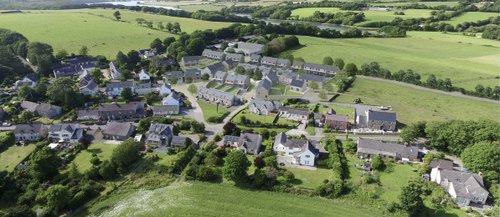Supporting sustainable communities with planning policy
In a consultation response to reforms to the National Planning Policy Framework in England, the CLA reiterates calls for policies that support sustainable rural housing development and updates to the green belt policy to make it fit for the future
The Levelling Up and Regeneration Bill is currently making its way through the Houses of Parliament and is at the committee stage in the House of Lords. Once suggested to be a Planning Bill, the bill includes some planning reform but significantly less and not as ambitious as some had hoped.
CLA members may have heard about the so-called ‘Theresa Villiers planning amendments’, which were put forward in the House of Commons and had the support of a significant number of backbench MPs. The amendments had so much support that Secretary of State Michael Gove was forced to pull the bill from its second reading in the House of Commons. Theresa Villiers’ amendments were seen by some as NIMBYISM in its purest form. They proposed removing mandatory housing targets, allowing local planning authorities to consider an applicant’s ‘character’ in applications and to introduce a community right of appeal.
Given the amount of backbench support for these amendments, Gove felt his hand was being forced and that he had to do something. So, the Department for Levelling Up, Housing and Communities published a consultation in December 2022 on reforms to the National Planning Policy Framework (NPPF). The consultation featured some significant proposed changes:
- Amendments to how local authorities may calculate housing need.
- Removing the “presumption in favour of sustainable development” in authorities with historic oversupply, sufficient permissions given, or “recognised restraints”, including Green Belt designations.
- Applicants’ character being taken into consideration in decisions, including whether they’re allowed to submit applications at all.
- Further protections for the best and most versatile agricultural land.
- Repowering of wind turbines, and changes to better enable renewable energy which has community support and delivers community benefits.
In fact, most of the proposals in the consultation could be linked back to one of the (now withdrawn) Theresa Villiers amendments.
The CLA’s Business and Rural Economy and Policy Committees reviewed the proposals before our response was submitted this week.
A need for sustainable development
In our response, we highlight the importance of a rolling five-year land supply for local authorities, and the necessity of the “presumption in favour of sustainable development” for rural housing development – something the CLA championed when it was adopted in 2012.
Smaller rural settlements are perpetually left behind when being allocated land and granted permissions. In 2021-2022, there were 4,556 new affordable homes in settlements with a population of less than 3,000
Local authorities with a ‘rural’ classification delivered 26,105 affordable homes in 2021-2022, demonstrating that smaller settlements saw only 17.5% of total rural delivery.
Green belt policy
The CLA has long supported a green belt policy that is fit for purpose to counter urban sprawl and coalescence. However, the proposed changes to the NPPF in this consultation would further protect green belt land from all development by allowing local authorities to use designation as an excuse to set inadequate housebuilding targets. At the same time, there was a proposal to further protect agricultural land from development. We responded that not only does agricultural land already have sufficient protection in planning policy, but that there needs to be a review to update green belt so it is fit for the next 50 years, and not what was required in the last century.
Opportunities for rural housing
Despite these concerning proposals, which would inevitably lead to rural areas being further left behind economically, there were some positive proposed changes in the consultation.
Firstly, there is a proposal to amend the definition of “affordable housing” in the framework, which would allow non-registered providers deliver affordable housing. The CLA has called for a wider definition to include rural landowners and businesses so our members can build, retain and manage affordable housing.
Secondly, there were opportunities in the consultation to promote a number of CLA policies, which would enable better delivery of small sites. For example, extending Class Q Permitted Development Rights for the conversion of agricultural buildings to dwellings in National Parks and Areas of Outstanding Natural Beauty (AONB), and excluding affordable housing from inheritance tax burden.
Finally, the consultation presented an opportunity to ease the planning process for delivering renewable energy, such as small-scale wind turbines and solar farms.
The CLA continues its work with on Levelling Up and Regeneration Bill, including briefing MPs and Peers, working with them to table amendments on our behalf and engaging with Whitehall on the challenges of rural planning and the solutions for a more effective system.
